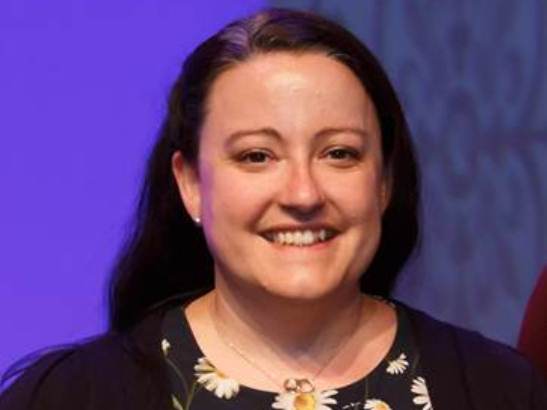
Dr Charlotte Pawlyn is a team leader of the Myeloma Biology and Therapeutics Team. Her research, funded primarily by Cancer Research UK and CRIS Cancer Research, takes her to the laboratory and the clinics developing new drugs and therapeutic strategies for patients with high risk and therapy resistant multiple myeloma, a type of bone marrow cancer.
What is the goal of Blood Cancer Awareness Month?
Blood cancer charities throughout the UK will be aiming to raise understanding of how blood cancers present. They are often difficult to spot because the symptoms can be mistaken for other conditions.
Charities like Blood Cancer UK and Myeloma UK work really hard to enhance public understanding of the kinds of symptoms that might be associated with blood cancers and how to get those investigated in time. This is really important as earlier diagnosis leads to better outcomes for patients. I work with these organisations to support these efforts and I’m a member of the Myeloma UK Research Advisory Group and the Medical Advisory Committee for Myeloma Patients Europe.
Can you describe the project you are working on?
My lab team is working hard in the laboratory to understand mechanisms of resistance to immunomodulatory drugs, used to treat a type of blood cancer called myeloma. These drugs are used at many different stages of the disease, in combination with other therapies or on their own.
Unfortunately, although myeloma therapeutics have improved quite a lot over the past few decades, patients will almost inevitably relapse. Understanding why the disease relapses while patients are still on these therapies is important to try and then get their myeloma back into remission.
Talk us through your typical day
My days are quite different! I am a clinician so I work in the hospital at least one day a week where I see patients in the myeloma clinic in The Royal Marsden. I also work setting up and running multiple clinical trials.
The rest of my time I manage my research lab, so I meet with members of my team, we have lab meetings, work out which areas to focus on or troubleshoot experiments. I also spend time writing or reading scientific papers and reviewing grants and papers.
What’s your favourite part of your job?
I love the variety. I can be in a lab and get really involved in the intricacies of lab experiments but also still go and look after patients in clinic and talk to them. I often find that conversations with patients lead to thinking about things in a different way, be that how to design aspects of trials or what to focus on in the lab.
A study I did looked at the side effects that patients suffer when they take lenalidomide. It can cause diarrhoea in a small subgroup of patients but for those patients it has a really significant impact on their quality of life. So, that prompted us to try and understand why those patients were getting diarrhoea and, in the end, we uncovered the underlying mechanism. That enabled us to give them different treatment alongside the lenalidomide to continue taking it without that side effect.
How would you describe your work in a tweet?
I'm working to find novel therapies for myeloma patients, to overcome resistance to current treatments and keep their myeloma in remission for longer.
Who do you collaborate with at the ICR and elsewhere?
I work with several other groups in the ICR, in the Cancer Therapeutics Division and more widely. I also work as part of a network of myeloma clinicians and scientists from around the UK called the UK Myeloma Research Alliance. This group is focused on designing trials to give patients access to new drugs and understand what treatments and approaches might be most effective for different stages of the disease.
I’m part of this network with Dr Martin Kaiser who works in the Genetics and Epidemiology Division.
What are you most proud of?
Recently, NICE approved a drug called lenalidomide for use in the UK after clinical trials showed it was effective at treating patients with multiple myeloma. This decision was partly informed by the results of the Myeloma XI clinical trial, which I help to run. The trial which showed improved disease remission and overall survival for patients taking the drug after autologous stem cell transplant. This is also one of the drugs that I study in the laboratory trying to understand how we can make it work even better and longer for patients.
What makes you want to work for the ICR?
The ICR is a world leading organisation with both a huge number of inspirational scientists and also access to a wide network of policy makers in a number of different fields. That gives me the opportunity to work with people from different fields and specialities to enhance my skills.
Research at the ICR is underpinned by generous contributions from our supporters. Find out more about how you can contribute to our mission to make the discoveries to defeat cancer.
Find out more
comments powered by